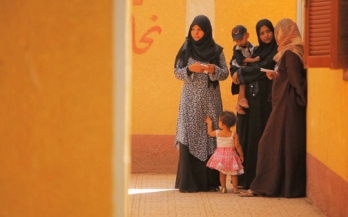- 01/08/2010
Micronutrient deficiencies, especially iron deficiency anaemia, are a public health problem in Egypt, where the prevalence of anaemia reaches about 40%. As a baseline for the fortification project, a field survey was conducted with the objective of assessing iron deficiency anaemia status, and dietary iron and bread consumption among the Egyptian population.
- 01/09/2012
Fortification of vegetable oil with vitamin A is considered a cost-effective and simple to implement strategy, but the stability of vitamin A remains a limiting factor. The objective of this study was to estimate vitamin A losses in oil with different chemical characteristics.
- 14/07/2017
Iron deficiency anemia is a major public health problem in sub-Saharan Africa. The objective of this study was to evaluate the efficacy of a complementary food fortified with sodium iron EDTA plus either ferrous fumarate or ferric pyrophosphate to combat iron deficiency anemia in preschool-age children in a highly malaria endemic region.
- 26/07/2017
This paper reports on case studies supported by the Global Alliance for Improved Nutrition (GAIN)-UNICEF USI Partnership Project to investigate processed food industry use of adequately iodised salt in contrasting national contexts.
- 01/03/2018
This report highlights the successes of the global effort to eliminate iodine deficiency disorders as a public health problem. The report was commissioned as part of UNICEF-GAIN Partnership Project, funded by the Bill & Melinda Gates Foundation from 2008 to 2015, to improve iodine nutrition through salt iodisation.




